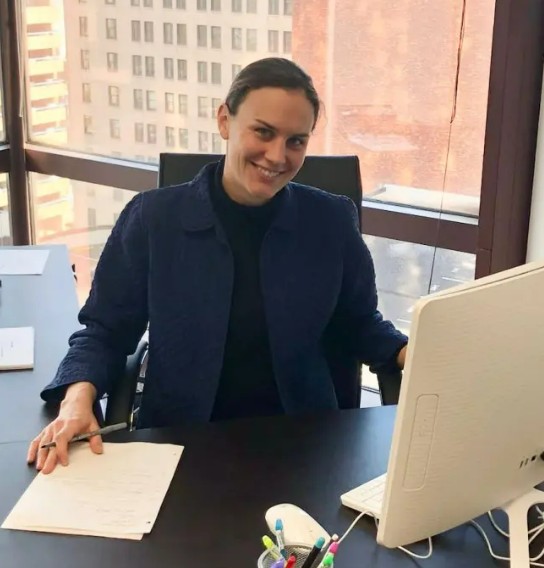The medspa industry is exploding. Botox®, fillers, IV hydration, body contouring, and laser treatments are no longer luxury procedures—they’re mainstream. Every year, more registered nurses (RNs) explore opening their own medspa or aesthetics practice.
But one question keeps coming up.
Can an RN open a medspa?
The short answer is no, not independently. In every US state, RNs are restricted by scope of practice laws. They cannot prescribe medications or legally “own” the clinical side of a medical practice.
Here’s the good news: there’s a legal workaround used by nearly every RN-led medspa in the country. It’s called an MSO (Management Services Organization) agreement. This structure allows you, the RN, to truly own and operate the business side of the medspa while your medical director “owns” the medical entity on paper to satisfy compliance rules.
Importantly:
- The physician does not get any equity.
- You keep 100% of the profits.
- The “ownership” is on paper only—a compliance maneuver.
Most law firms charge $3,000–$7,500+ for an MSO agreement. At Medical Director Co., we provide it for free when you hire a medical director through us.
This guide covers:
- Why RNs cannot open a medspa independently.
- The MSO workaround.
- RN vs NP vs MD ownership rules.
- State-by-state medspa ownership laws.
- A step-by-step RN medspa startup guide.
- FAQs to clear up compliance confusion.
By the end, you’ll know exactly how to open your own medspa legally without giving up equity.
Why RNs Cannot Own a Medspa Alone
There are three key reasons RNs can’t legally own the clinical side of a medspa:
1. Corporate Practice of Medicine Doctrine
Most states prohibit nonphysicians from owning medical entities. Since medspas perform medical procedures (injectables, laser, prescription meds), they fall under these laws.
2. RN Scope of Practice
RNs can perform injections and treatments but only under physician or NP orders. They lack prescriptive authority, so they cannot independently manage medical care.
3. Liability & Legal Risk
Standing orders, prescriptions, and medical oversight must come from a licensed physician (or NP/PA in certain states). RNs risk license suspension, fines, and practice shutdown if they operate outside this structure.
The Workaround for Medspas: MSO Agreements
The MSO model is the legal workaround that allows RNs to comply with medical director requirements and open medspas nationwide.
How It Works
A medical director for RNs (MD/DO) “owns” the professional medical corporation (PC/PLLC) on paper.
The RN (or business partner) owns the MSO, which controls everything nonmedical:
- Marketing & branding
- Staffing & payroll
- Leasing & equipment
- Profits & revenue
The MSO contracts with the MD for medical oversight.
Key point: The physician does not get equity or profit share. Their “ownership” is strictly on paper to comply with state law. You keep 100% of the business.
RN vs NP vs MD Ownership Rules
| Role | Can They Open a Medspa? | Prescriptive Authority | Supervision Needed | Typical Structure |
| RN | No, not independently | None | Must work under an MD/NP | MSO w/ MD |
| NP | Sometimes (varies by state) | Partial (varies by state) | Some require an MD | NP-owned medspa or MSO |
| MD/DO | Yes (all states | Full | None | Direct ownership or MSO |
State-by-State RN Medspa Ownership Laws
Here’s a breakdown of medspa ownership by state, plus quick notes on others.
Texas
- The corporate practice of medicine applies.
- RNs cannot own a medspa.
- Workaround: MSO w/ MD.
Florida
- Only MDs/DOs (and some NPs) can own.
- RNs must use MSO with physician oversight.
California
- Strict corporate practice rules.
- Only physicians may own clinical entities.
- RNs operate via the MSO model.
New York
- Only physicians can own medspas.
- RNs must partner under MSO.
Michigan
- Corporate practice doctrine enforced.
- RN ownership prohibited; MSO workaround required.
Arizona
- More NP-friendly.
- RNs still require MSO with an MD.
New Jersey
- Restrictive.
- Only MDs can own; RNs must use MSO.
Oklahoma
- Corporate practice applies.
- RN ownership prohibited.
Tennessee
- Physicians must have majority control.
- RN ownership via MSO is possible.
Georgia
- Very strict.
- Only MDs can own; an MSO is required for RNs.
Alabama
- Corporate practice enforced.
- RN ownership not permitted; MSO only.
Quick Notes on Other States
- Illinois, Colorado, Washington: Corporate practice rules apply = MSO required.
- Nevada, Arizona, New Mexico: More flexible, but RN ownership is still restricted.
- Hawaii, Alaska: MD ownership preferred; RN/MSO still safest structure.
- All States: Even where corporate practice is less strict, RNs still lack prescriptive authority, so you’ll always need physician oversight.
For a full compliance breakdown, the American Med Spa Association’s State Legal Summaries is a great resource.
Step-by-Step: How an RN Can Open a Medspa Legally
1. Secure a Medical Director
- Required in all states.
- Use Medical Director Co. for fast placement.
2. Draft an MSO Agreement
- Splits clinical (MD) vs business (RN)
- Free from Medical Director Co. (saves $3000–$7500).
3. Register Entities
- Medical PC/PLLC (owned on paper by MD)
- MSO (owned by RN/business team)
4. Obtain Insurance
- Malpractice + general liability coverage
5. Set Up Distributor Accounts
- Botox®, dermal fillers, and prescription meds require proper ordering channels.
6. Create SOPs & Standing Orders
- MD signs off on treatment protocols.
- RNs execute procedures under protocols.
7. Launch Marketing & Operations
- All branding, marketing, and staffing run under RN/MSO.
Real-World Examples
- Texas RN: Uses MSO. MD signs standing orders. RN runs payroll, marketing, and patient care. RN keeps profits.
- California RN: LLC formed. MD “owns” the PC on paper; RN owns MSO. RN fully controls the business.
- Florida RN: Telehealth model. MD prescribes via standing orders. RN handles patient flow, billing, and operations.
FAQs
Can an RN open a medspa with a silent physician partner?
Yes. That’s the MSO model. The MD has paper ownership only.
Does the medical director get any equity?
No. You keep 100% ownership and profits. The MD is paid a flat oversight fee.
Why do I need an MSO agreement?
Without it, you risk fines, license issues, and shutdowns.
How much does an MSO agreement cost?
Typically $3000 to $7500 from law firms. At Medical Director Co., it’s included free with every placement.
Can an RN inject Botox® without a medical director?
No. All injectables require physician oversight.
Can an RN open a medspa franchise?
Yes, but always under MSO structure with physician oversight.
What if I partner with an NP instead of an MD?
Some states allow this, but NP authority varies. MD/MSO is the safest structure nationwide.
Takeaway
So, can an RN open a medspa?
Not independently. In Texas, Florida, California, New York, Michigan, Arizona, New Jersey, Oklahoma, Tennessee, Georgia, and Alabama—and every other state—the laws are clear: only physicians (and in some states NPs) can own the clinical side.
But with an MSO agreement, you can:
- Launch your medspa legally.
- Keep 100% equity and profits.
- Have the physician “own” on paper only.
- Access standing orders, distributor accounts, and prescription authority.
Unlike firms that charge thousands, Medical Director Co. provides your MSO agreement for free when you hire a medical director through us. Ready to start your medspa the right way? Contact us and get compliant today.

Bolton M. Harris, J.D., is a seasoned attorney with a formidable background in criminal law and a focus on healthcare law and compliance. As the in-house legal counsel at Medical Director Co., Harris brings a unique blend of prosecutorial experience and regulatory expertise to support healthcare professionals across Texas. Her career spans roles as a prosecutor in multiple counties and now as a trusted advisor on the legal intricacies of medical practice operations.
Education & Early Career
Bolton Harris completed her undergraduate studies at Southern Methodist University (SMU) in 2013. During her time at SMU, she was not only a dedicated student but also a competitive athlete on the university’s women’s swimming team. She went on to earn her Juris Doctor from Texas A&M University School of Law in 2016 and became a member of the Texas Bar that same year. Armed with a strong academic foundation and discipline honed as a student-athlete, Harris embarked on a career in criminal law immediately after law school.
Prosecutorial Experience in Texas
Bolton Harris began her legal career in public service as a criminal prosecutor. She served as an Assistant District Attorney in multiple jurisdictions, where she quickly rose through the ranks and handled a broad spectrum of cases. Some highlights of her prosecutorial career include:
- Assistant District Attorney, Dallas County, Texas: Prosecuted a high volume of criminal cases in one of the state’s busiest DA offices, gaining extensive trial experience in both misdemeanor and felony courts.
- Assistant District Attorney, Ellis County, Texas: Continued to hone her courtroom advocacy skills, known for meticulous case preparation and a tenacious pursuit of justice on behalf of the community.
- Assistant District Attorney, Navarro County, Texas: Broadened her legal expertise by handling diverse criminal matters in a smaller county, working closely with law enforcement and community leaders to uphold the law.
Through these roles, Harris built a reputation for being a tough but fair advocate. She brought numerous cases to trial and developed an in-depth understanding of the criminal justice system. This distinguished prosecutorial background laid a strong foundation for the next phase of her career in the private sector.
Healthcare Law & Compliance at Medical Director Co.
After her tenure as a prosecutor, Harris shifted her focus to healthcare law, applying her legal acumen to the medical field. She recognized that the same attention to detail and tenacity that served her in criminal law could benefit healthcare providers navigating complex regulations. Embracing this new direction, Harris became well-versed in the intricate laws governing medical practices – from licensing requirements to patient safety and privacy standards – and is passionate about helping practitioners stay compliant.
In her current role as the in-house attorney for Medical Director Co., Bolton Harris oversees all legal and compliance matters for the organization and its clients. Medical Director Co. is a nurse-owned firm that connects nurse practitioners (NPs), physician assistants (PAs), and registered nurses with qualified medical directors and collaborating physicians, offering fast placements and comprehensive compliance support for healthcare practices. Harris ensures that each of these partnerships and clinical ventures adheres to all applicable state and federal laws. She is responsible for drafting and reviewing collaborative practice agreements, advising on regulatory requirements, and providing ongoing legal counsel as clients establish and grow their clinics. Drawing on her prosecutorial eye for risk management, Harris proactively identifies potential legal issues and addresses them before they escalate, giving healthcare professionals peace of mind.
Bolton M. Harris’s multifaceted expertise – spanning high-stakes courtroom litigation to detailed healthcare compliance – makes her a formidable legal ally. Whether advocating in front of a jury or guiding a medical practice through regulatory hurdles, she remains committed to the highest standards of the legal profession. Her blend of courtroom-tested skill and healthcare law knowledge ensures that clients of Medical Director Co. receive elite-level counsel and steadfast protection in an ever-evolving legal landscape.


